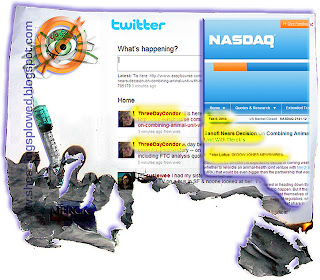 So -- it has taken over a year to fully-surface -- but our predictions that "Son of Merial" (or Merial II, if you prefer!) would face high antitrust hurdles were. . . deadly accurate. The first is from an anonymous commenter of mine; the second is from the Wall Street Journal's Pete Loftus (in February 2010):
So -- it has taken over a year to fully-surface -- but our predictions that "Son of Merial" (or Merial II, if you prefer!) would face high antitrust hurdles were. . . deadly accurate. The first is from an anonymous commenter of mine; the second is from the Wall Street Journal's Pete Loftus (in February 2010):
. . . .Poultry's the biggest problem, we all know that. Cattle is possibly a problem, though I don't there's as much overlap as you might think at first glance (in the U.S. -- globally there are more issues). But I think Lilly or Bayer would demand more than JUST poultry to get the deal done. My completely unscientific guess is that the "new" merial will be about 60-65% of what it would be without any divestitures.
February 7, 2010 3:45 PM. . . .
[Dow Jones' Mr. Loftus, then:]
. . . .Antitrust issues would resurface, however. The FTC previously identified poultry vaccines and certain cattle drugs as segments where the combined market share of Merial and Intervet/Schering-Plough would be too large. In the U.S, for example, Merial and Intervet Schering-Plough together account for about 75% of poultry vaccine sales, the FTC said. . . .Such issues might be sorted out when Merck goes through the FTC prior-approval process if Sanofi exercises its option. The FTC said in documents last year the prior-approval provision was designed "to preserve the remedial benefits" of Merck's sale of its Merial stake to Sanofi, citing a "high likelihood" that Merck and Sanofi would combine their animal-health assets again. . . .
This could easily stretch past year end 2011, unless Merck and Sanofi announce the placement of some major pieces of the regulators' (ECC, ACC and US FTC/DoJ) required split-off puzzle-rubric (from the now year long auction bidding process) very soon. We'll keep you apprised.

















No comments:
Post a Comment